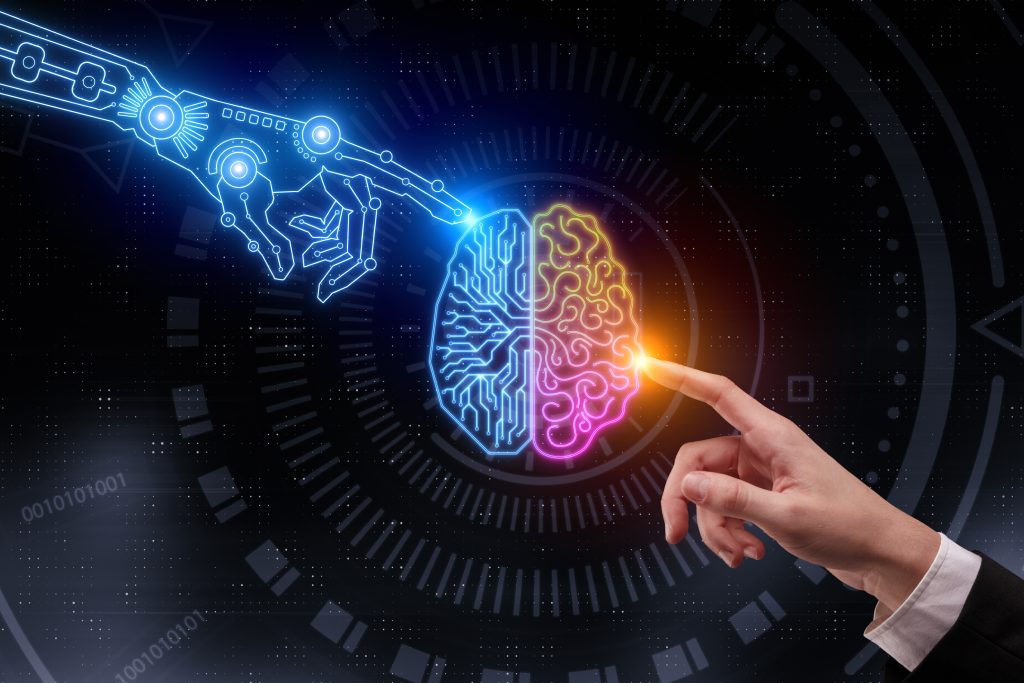After seeing how AI plays a fundamental role in each economic sector today, in this article we will try to anticipate what the future implications of the adoption of this technology could be.

When you think about the Artificial Intelligence of the future, your mind goes back to the stereotypes and clichés of science fiction, that is, intelligent machines and robots that can represent both a positive evolution and a risk for humanity, which could be subjugated by machinery and computer systems evolved.
The hope, of course, is that all this is an exaggeration and that Artificial Intelligence makes a significant contribution to humanity, perhaps by providing help to people to carry out jobs that have less added value.
STRONG AI VS WEAK AI?
To address the topic, we revisit the concept of Strong AI and Weak AI , introduced in a previous article and useful for understanding the direction we are pursuing.
With the Artificial Intelligence WEAK, the use cases of Artificial Intelligence aimed at solving a specific problem or process are identified . The Artificial Intelligence processes existing today are based purely on this principle.
With STRONG AI , however, we represent all those AI solutions that try to think and act like humans . STRONG AI, in fact, is based on human logical reasoning, capable of solving any type of problem through experience and acquired knowledge.
We are still far from a tout court application of Artificial Intelligence to business or production processes, therefore it is expected that Artificial Intelligence in the future will follow the path of WEAK AI .
THE EMBEDDED AI
From the great robots of science fiction, we move on to application in the real world and in particular to consider practical applications in everyday life, aimed at automating business processes through deep learning.
Deep learning exploits the principle of neural networks and applies them to allow computer systems to manage even different tasks and enrich them with machine learning and automatic learning.
The term EMBEDDED AI , therefore, means the process of inserting parts of code developed in a modular way and/or through the use of containers into a system or device ( a new concept that facilitates the development and management of applications and their distribution) in the so-called “endpoint” devices, i.e. the devices we use every day or those designed to control a specific step of a process.
With these devices and this type of code, it is possible to evaluate the functioning of a specific machine and its performance. EMBEDDED AI is, in a certain sense, the evolution of IoT ( Internet of Things ) and Artificial Intelligence applied to devices.

GENERATIVE ARTIFICIAL INTELLIGENCE
Another relatively recent practical application of Artificial Intelligence and which will have great implications in the future is the so-called Generative AI, which we have already talked about here : this practical application of AI will allow the automatic generation of original content, with the ambition to emulate human creativity.
Suffice it to say, among other things, that we will soon also be able to see a film produced entirely by AI, as we explained here .
These use cases project Artificial Intelligence into the future because, thanks to the evolution of Artificial Intelligence models and the algorithms on which it is based, it develops a certain “creativity” which is the prerogative of the human being and which up to some some time ago it was unthinkable for a machine.
HOW WILL THIS TECHNOLOGY GROW?
The race to produce Artificial Intelligence algorithms is increasingly central and is also attracting high interest from international governments, so much so that it has become necessary and urgent to build a European regulatory tool to try to dictate the path it can take, in order to make it safe, ethical and respects the values of humanity.
CONCLUSIONS
As we have seen here , an ethical question arises as to whether Artificial Intelligence can transform the world of work by bringing negative factors, but various research proves the opposite.
Finally, Artificial Intelligence will provide an increasingly fundamental contribution, especially in the fields of medicine, climate and energy, where the analysis of large quantities of data (the so-called “Big Data”) will allow the construction of increasingly accurate and realistic.
In the next article we will talk about how you can apply Artificial Intelligence to your business processes in practice, to get the maximum benefit from these innovations.

